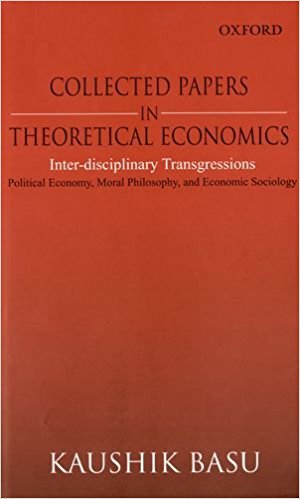The essays in the volume written over a period of about two decades reflect Basus rare gift for identifying interesting problems at the borders of economics, politics, sociology and philosophy, setting them up within parsimonious frameworks and then drawing sharp and incisive observations, which are of interest to an unusually diverse audience, ranging from economic theorists to policy makers to the interested observer of contemporary issues;unusual because it has become increasingly the norm for serious academic work in economics to be accessible only to a very narrow audience who are directly involved with the field or sub-field from which such work emanates.
In what sense is Basus concern inter-disciplinary in this collection of essays? He clarifies the scope of the term ;interdisciplinary in the introductory essay, which explains the selection of essays made for the volume.1
The collection of papers in this volume is a sampler of my effort, over the years, to trespass some of the boundaries of the disciplines that gird contemporary economics, most notably moral philosophy, sociology, law, and politics. In writing these papers I have been fully aware of my limitations. I have ventured into these neighbouring disciplines because of a deep awareness of how important it is to do so if we want to have a deeper understanding of economics, for instance, why some nations grow and others stagnate, why in some nations markets are so efficient and in others they are chaotic and barely deliver. At the same time I have been acutely aware of the fact that I have only the most rudimentary knowledge of these subjects. So what I have attempted in these papers is serious economic research, while picking bits and pieces of information and research results from the disciplines within which economics is embedded (Basu 2010: 1).

